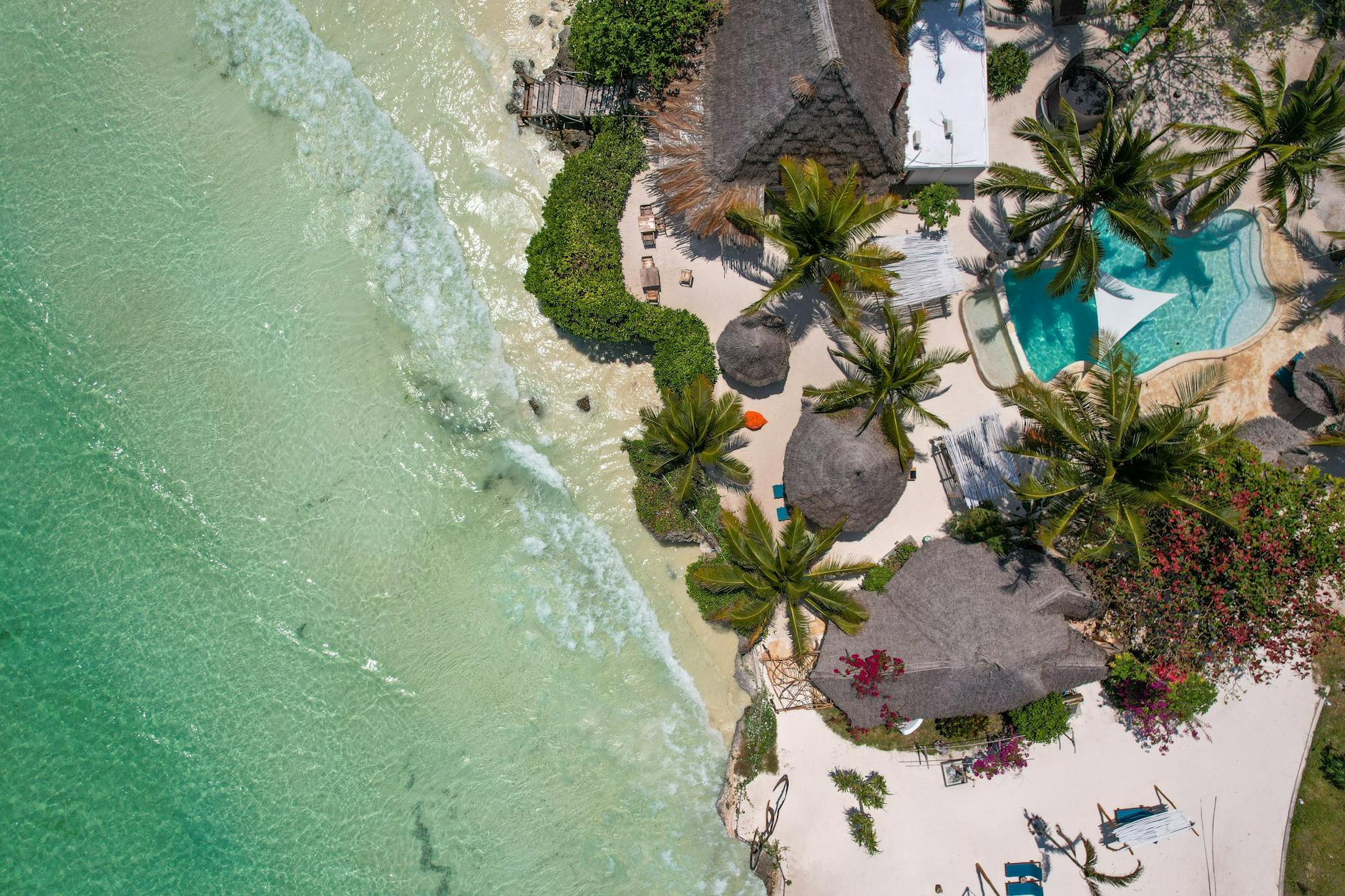Zanzibar, the idyllic island off the coast of Tanzania, is quickly emerging as a prime destination for expats seeking a tropical paradise with promising real estate opportunities. Known for its stunning beaches, rich culture, and strategic location in the Indian Ocean, Zanzibar is attracting an increasing number of foreign investors and expats looking to buy property in one of Africa’s most serene locations.
For those interested in international real estate investment, Zanzibar offers a unique combination of affordability, investment potential, and a relaxed lifestyle that is hard to find elsewhere.
Why Zanzibar is Attracting Expats
- Strategic Location and Connectivity
Located just off the coast of mainland Tanzania, Zanzibar is easily accessible from major international hubs. With direct flights from cities like Dubai, Nairobi, and Johannesburg, the island is well-connected, making it a convenient destination for expats from around the world. Zanzibar’s proximity to East Africa’s major economies also makes it a potential investment gateway, particularly for those interested in business opportunities in the region. - Affordable Real Estate Prices
One of the most compelling reasons expats are flocking to Zanzibar is the affordability of real estate. Compared to other tropical destinations like the Caribbean or Southeast Asia, property prices in Zanzibar are still relatively low. Expats can find beachfront properties, private villas, and residential homes at a fraction of the price they would pay in other global markets. The island’s government has also introduced incentives for foreign property buyers, such as long-term leases for non-citizens, which has further stimulated interest from international investors. - Lifestyle Appeal
Beyond the economic factors, Zanzibar’s allure lies in its quality of life. The island boasts a laid-back lifestyle with year-round warm weather, beautiful beaches, and a vibrant cultural scene. For expats seeking an escape from the hustle and bustle of urban life, Zanzibar offers tranquility and the opportunity to embrace a more relaxed, island-style way of living. Additionally, Zanzibar has a growing expat community, with people from around the world relocating to enjoy the island’s unique charm. This thriving international community provides a network of support for new expats, making it easier to transition to life on the island.
Investment Potential in Zanzibar’s Real Estate Market
- Tourism-Driven Growth
Zanzibar is known for its thriving tourism industry, which continues to be a driving force behind its real estate market. The island attracts tourists from all over the world, drawn by its crystal-clear waters, historical architecture, and cultural diversity. This constant influx of visitors has created a growing demand for short-term rentals and vacation homes, providing opportunities for expats to invest in the hospitality sector. Whether it’s developing boutique hotels, beachfront resorts, or vacation villas, there are significant opportunities for expats to capitalize on Zanzibar’s expanding tourism industry. Additionally, rental yields from short-term holiday rentals can provide a steady income stream for property investors. - Government Support and Legal Framework
The Tanzanian government has been proactive in making Zanzibar an attractive destination for foreign investment. While non-citizens cannot outright own land in Zanzibar, they can secure long-term leases of up to 99 years, allowing them to develop and profit from the property. This system provides expats with security and a clear legal framework for property investment. Furthermore, Zanzibar’s government has been focusing on infrastructure development to support the growing real estate market. Improved roads, utilities, and connectivity are making the island more attractive to both expats and tourists, driving property values upward. - Development of Special Economic Zones
Zanzibar has designated certain areas as Special Economic Zones (SEZs) to encourage both local and foreign investment. These zones offer tax incentives and other benefits to investors, particularly in sectors like tourism, agriculture, and real estate development. For expats, investing in properties located within or near these SEZs could offer substantial returns as the island’s economy grows.
Factors to Consider When Buying Real Estate in Zanzibar
- Leasing Structure for Foreigners
As previously mentioned, foreigners cannot own land in Zanzibar outright but can lease it for up to 99 years. Expats should work with a local legal expert to navigate the leasing process and ensure that all paperwork and legal requirements are in order before committing to a purchase. - Market Research and Due Diligence
Like any real estate investment, conducting thorough market research is critical. Zanzibar’s property market is still developing, so it’s important for expats to carefully evaluate location, property value trends, and potential rental income before making any investment decisions. - Property Management
For expats who do not plan to live in Zanzibar full-time, hiring a reliable property management company is essential. These companies can help maintain the property, manage rentals, and ensure that all legal and financial obligations are met, allowing expats to enjoy their investment without needing to be on the ground year-round.
Conclusion
Zanzibar offers an exciting opportunity for expats seeking both a tropical lifestyle and strong real estate investment potential. With affordable property prices, government incentives, and a booming tourism industry, the island is poised for long-term growth. For those looking to diversify their international real estate portfolio, Zanzibar stands out as a promising destination.
At Invest Offshore, we continue to explore unique opportunities like Zanzibar for our clients. Additionally, we offer investment opportunities in West Africa’s Copperbelt Region for those seeking to expand their portfolio into high-growth areas with rich natural resources.
Zanzibar may be your next move—whether for leisure, lifestyle, or investment!

Leave a Reply